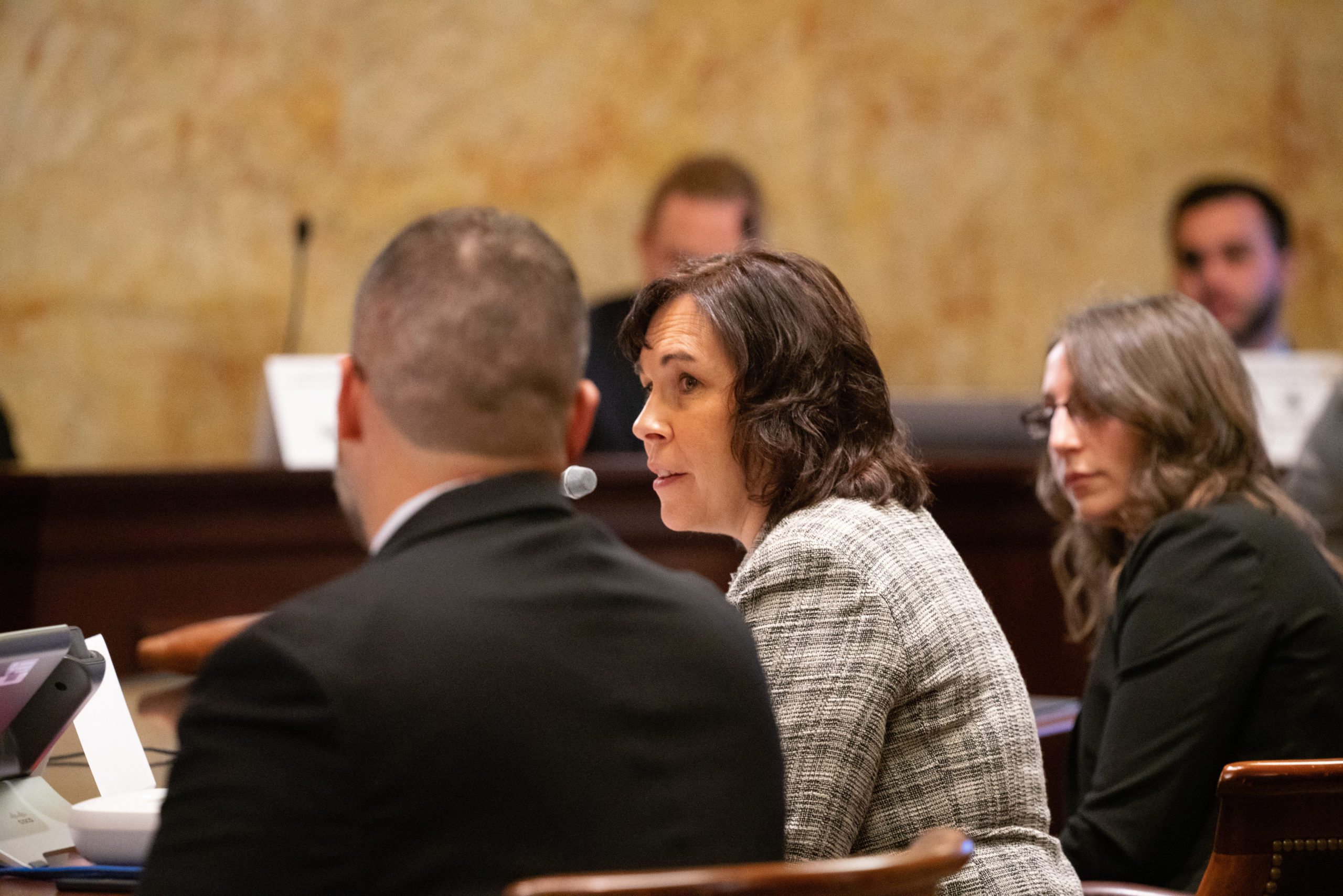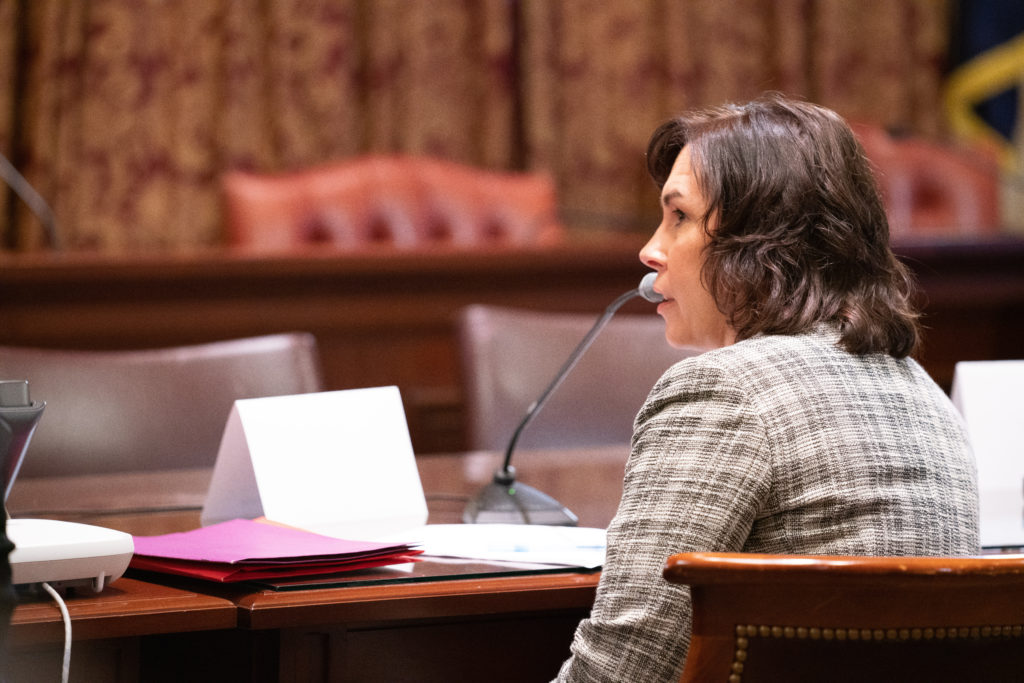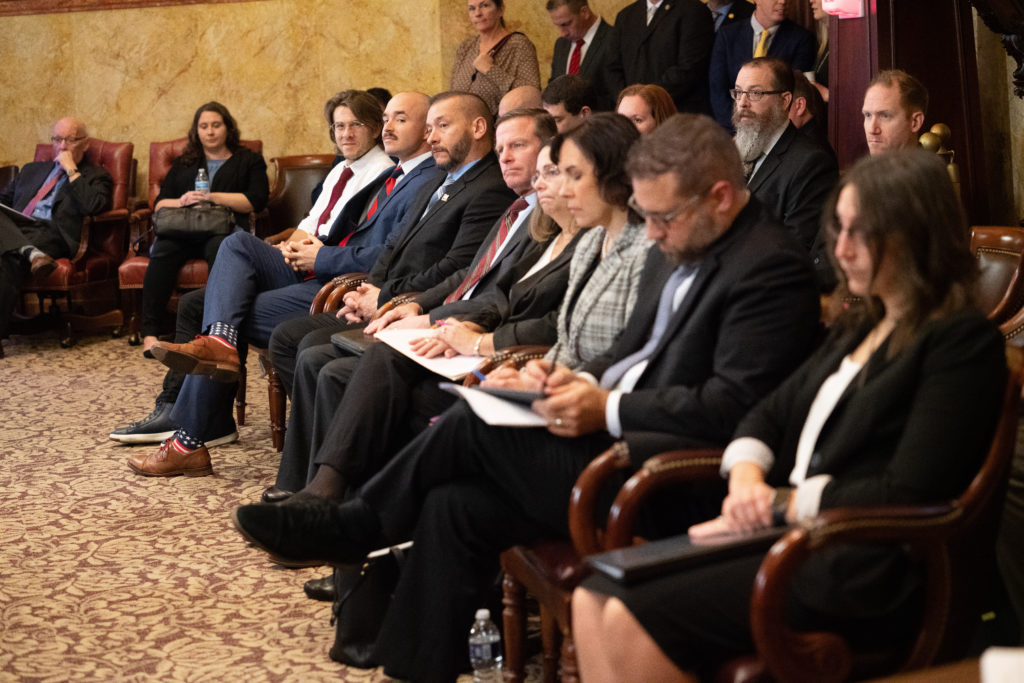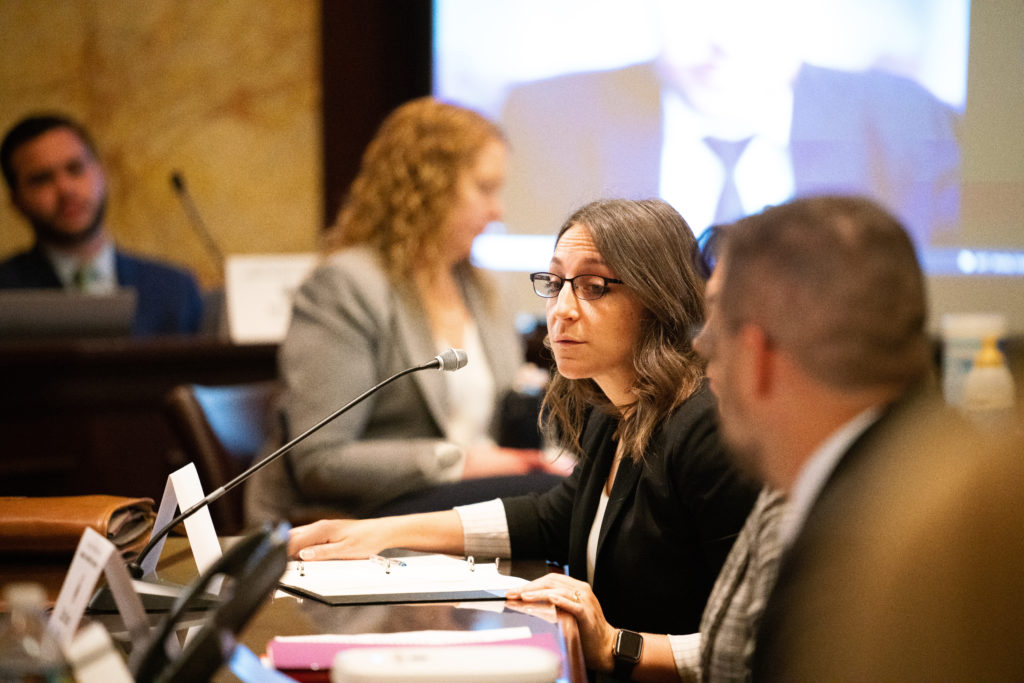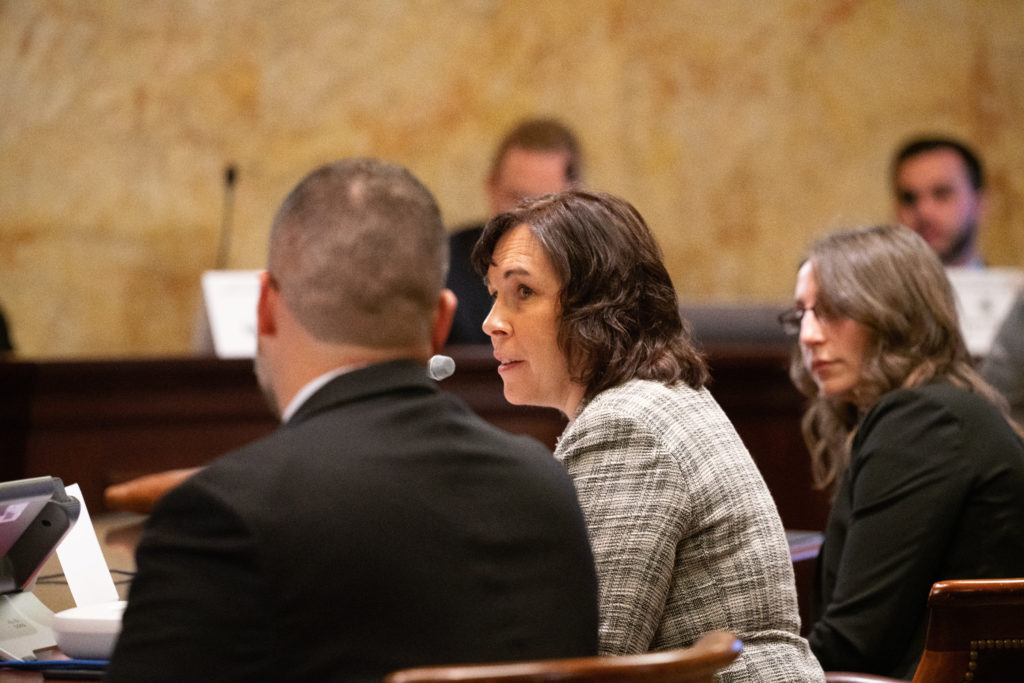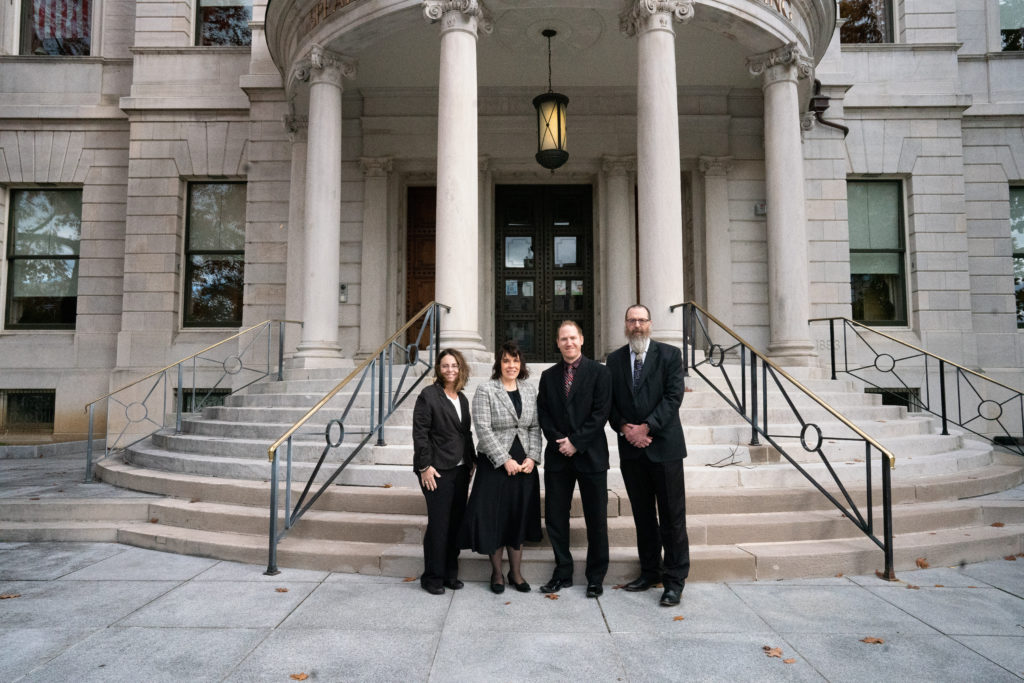Several bills that would give public employees a greater voice in their relationship with their workplace unions were discussed by the Pennsylvania House Labor and Industry Committee on Monday. The Democratic committee members refused to participate.
Democratic Chairman Gerald Mullery (D-Luzerne) read a brief statement at the beginning of the hearing then made a show of walking out of the room before testimony was given. He proceeded to hold a press conference outside the hearing room with union officials while the public hearing continued.
Committee Chairman Jim Cox (R-Berks) said that the committee had invited both PSEA and AFSCME to join the panel, but they declined.
“We made efforts to make sure all voices were heard on this issue,” he said.
If the Democrats had stayed, they would have heard from North Pocono teacher Cheri Gensel, who is also a member of Americans for Fair Treatment (AFFT). She gave impassioned testimony about how the unions have intruded in her work as a teacher and how they tried to force political opinions on her that she did not hold.
“Teaching is my passion, it’s my life, I call it a privilege and I do not take lightly,” she said. “However, my values and world views do not always align with those of the Pennsylvania State Education Association, the PSEA, or those of the National Education Association, the NEA. But when you become a teacher, it is expected that you become part of the union.”
Gensel told committee members about letters she received from the PSEA telling her to switch her party affiliation from Republican to Democrat to vote for Gov. Tom Wolf in the Democratic primary. The letters also disparaged her party affiliation, insinuating that it made her a bad teacher.
She also explained how union officials went classroom to classroom during the school day to try to pressure teachers into making donations to the PSEA Political Action Committee (PAC).
Committee member David Rowe (R-Snyder), who also sponsored two of the bills being discussed at the hearing, told Gensel that she was “not alone” in her desire to push back on the unions and praised her for wanting to be a “teacher, not a political puppet.” He said he has heard from many teachers who feel the same way.
The committee also heard testimony from AFFT CEO David Osborne, who showed the committee examples of union cards that have misleading or confusing language.
“I think we can all agree that public-sector employees deserve to understand their rights, that no one should be forced to be in a union just to get a government job, and that everyone should have a choice when it comes to which union represents them,” he said.
Unfortunately, he said, unions are constantly looking for new ways to keep information from public employees, and for ways to lock them into paying membership dues using “complicated membership forms and legal jargon.”
Other individuals testifying included Josh Cunningham, a project director with the non-partisan National Conference of State Legislatures; Danielle Acker Susanj, vice president and senior litigation counsel for The Fairness Center, and Jeffrey Sultanik, chair of the Education Law Group at Fox Rothschild LLP. Several public employees and other organizations submitted written testimony to the committee.
Chairman Cox wrapped up the hearing by saying that he intended to continue discussing the bills with various stakeholders.
“The concept of being able to associate or disassociate [with an organization] is something that is intrinsically very American, so I appreciate those who are willing to stand up for the little guy, if you will, and to provide those options,” he said. “It’s important that we give everyone a voice.”
The bills discussed by the committee include:
- HB 2048, which would stop government employers from withholding political donations from employees’ paychecks on behalf of unions.
- HB 2037, which would give public employees the opportunity to vote every few years on which union represents them.
- HB 844, which would keep public employees’ personal information—like social security numbers and home addresses—private.
- HB 845, which would provide greater transparency during the collective bargaining process.
- HB 2036, which would prevent unions from limiting when employees can exercise their right to leave a union and stop paying dues.
- HB 2042, which would inform all public employees of their rights related to union membership.
